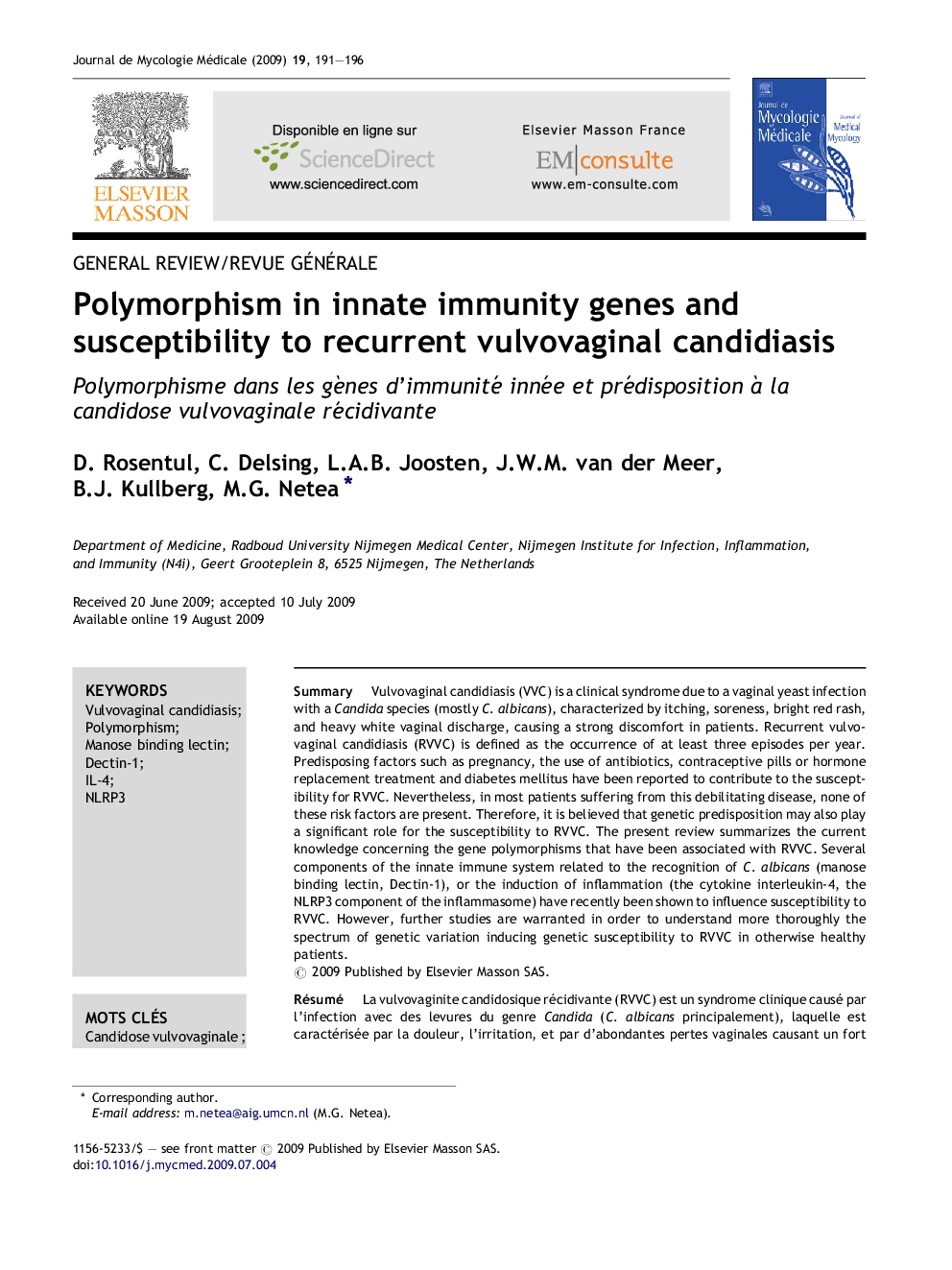| Article ID | Journal | Published Year | Pages | File Type |
|---|---|---|---|---|
| 3220211 | Journal de Mycologie Médicale / Journal of Medical Mycology | 2009 | 6 Pages |
SummaryVulvovaginal candidiasis (VVC) is a clinical syndrome due to a vaginal yeast infection with a Candida species (mostly C. albicans), characterized by itching, soreness, bright red rash, and heavy white vaginal discharge, causing a strong discomfort in patients. Recurrent vulvovaginal candidiasis (RVVC) is defined as the occurrence of at least three episodes per year. Predisposing factors such as pregnancy, the use of antibiotics, contraceptive pills or hormone replacement treatment and diabetes mellitus have been reported to contribute to the susceptibility for RVVC. Nevertheless, in most patients suffering from this debilitating disease, none of these risk factors are present. Therefore, it is believed that genetic predisposition may also play a significant role for the susceptibility to RVVC. The present review summarizes the current knowledge concerning the gene polymorphisms that have been associated with RVVC. Several components of the innate immune system related to the recognition of C. albicans (manose binding lectin, Dectin-1), or the induction of inflammation (the cytokine interleukin-4, the NLRP3 component of the inflammasome) have recently been shown to influence susceptibility to RVVC. However, further studies are warranted in order to understand more thoroughly the spectrum of genetic variation inducing genetic susceptibility to RVVC in otherwise healthy patients.
RésuméLa vulvovaginite candidosique récidivante (RVVC) est un syndrome clinique causé par l’infection avec des levures du genre Candida (C. albicans principalement), laquelle est caractérisée par la douleur, l’irritation, et par d’abondantes pertes vaginales causant un fort malaise chez les patientes au moins fois trois par an. La grossesse, l’utilisation d’antibiotiques, de pillules contraceptives, et la thérapie de remplacement d’hormones, ainsi que le diabète mellitus sont les facteurs prédisposants à la RVVC. Néanmoins, la plupart des patientes souffrant de cette maladie ne présentent aucun de ces facteurs de risque, ce qui laisse donc supposer que la prédisposition à la RVVC peut être due à une cause génétique. Le présent résumé récapitule les connaissances actuelles au sujet des polymorphismes génétiques associés à la RVVC. Il a récemment été démontré que plusieurs composants du système immunitaire inné associés à l’identification des cellules de C. albicans (à savoir, la lectine de liaison du mannose et la Dectine-1 en ce qui concerne les récepteurs, ainsi que la cytokine interleukine-4 et le composant NLRP3 de l’inflammasome pour ce qui est de l’induction de l’inflammation) prédisposent à la RVVC. Cependant, d’autres études plus approfondies sont justifiées afin de mieux comprendre le spectre de la variation génétique induisant la prédisposition à la RVVC chez les patientes en bonne santé.
